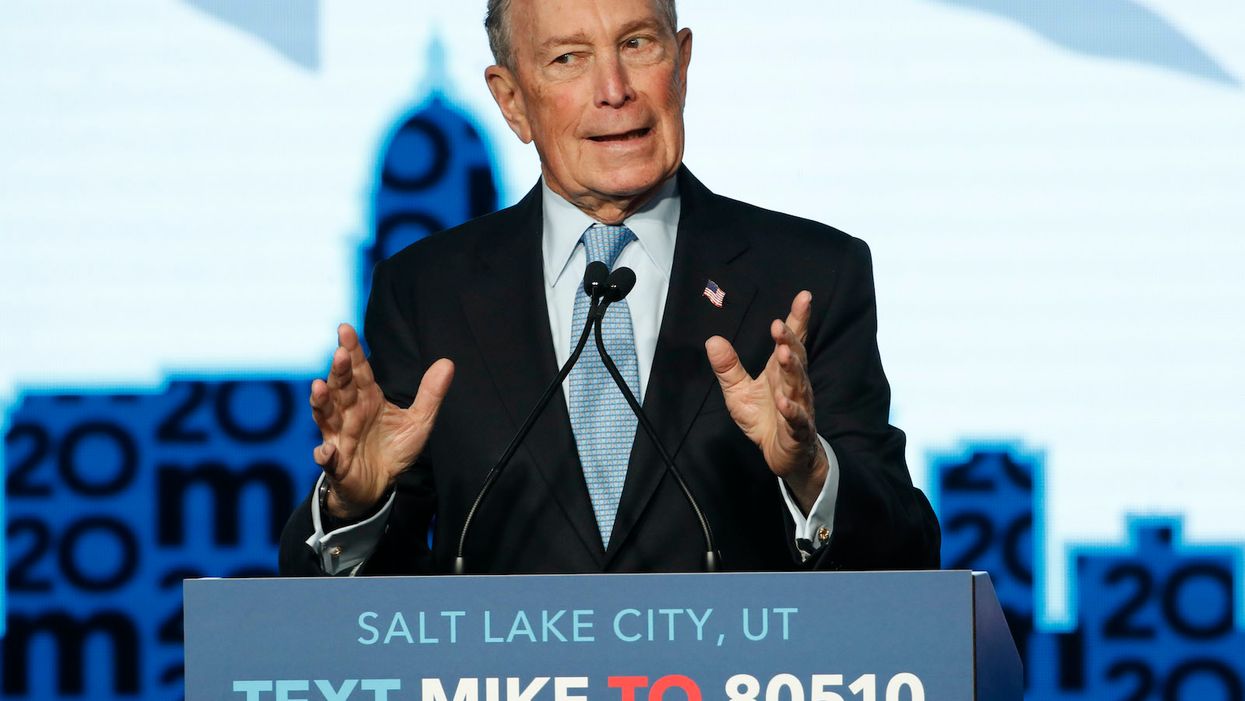
George Frey/Getty Images

They've both defended authoritarian regimes
Democratic presidential candidate and former New York City Mayor Michael Bloomberg is calling out his primary campaign rival Sen. Bernie Sanders (I-Vt.) for the latter's comments praising the authoritarian Fidel Castro regime in Cuba, but he might want to rethink that tactic given what he's previously said about the authoritarian Communist regime in China.
During a Sunday night interview on CBS' "60 Minutes," Sanders was confronted with some of his past comments supporting the repressive regime in Havana. When asked about them by show contributor Anderson Cooper, the senator said that he still does support aspects of the Castro government's rule.
"We're very opposed to the authoritarian nature of Cuba," Sanders said to Cooper before offering his defense of the regime. "But it's unfair to say that everything is bad."
Sanders then went on to say that "When Fidel Castro came into office, you know what he did? He had a massive literacy program. Is that a bad thing even though Fidel Castro did it?"
Cue Mike Bloomberg's retort. The New York billionaire was one of many people who took issue with Sanders' partial defense of the communist government, putting out his criticism in the form of a Monday afternoon tweet.
"Fidel Castro left a dark legacy of forced labor camps, religious repression, widespread poverty, firing squads, and the murder of thousands of his own people," the former mayor wrote. "But sure, Bernie, let's talk about his literacy program."
While Bloomberg's criticism may have been apt, indeed, for the matter at hand, the former mayor doesn't come from too strong of a position to lecture others on not defending repressive regimes.
Lest we forget, just a few months ago Bloomberg went as far as to say that Chinese leader Xi Jinping was not a dictator and that the regime in Beijing has to listen to its constituents and claimed an effort to boost air quality by moving coal-fired plants away from cities as an example.
"The Communist Party wants to stay in power in China, and they listen to the public," Bloomberg said in a September interview with PBS. "When the public says 'I can't breathe the air' — Xi Jinping is not a dictator. He has to satisfy his constituents or he's not going to survive."
"He's not a dictator?" PBS' Margaret Hoover asked.
"No," the former New York City mayor responded, "he has a constituency to answer to."
But if Xi Jinping isn't a dictator, as Bloomberg has posited, his government certainly does a lot of dictatorial things.
The statement came after the literally months of reports about violent crackdowns against Hong Kong protesters by Beijing. It also was made a few months too long after stories of concentration camps holding over one million Uighur Muslims, as well as the numerous reports about Beijing's high-tech surveillance operation against the religious minority.
In addition there's the 2018 report that served to bolster the long-standing charges that the Chinese government sanctions live organ harvesting of members of the Falun Gong religious group, as well as the 2019 tribunal that concluded that the regime was harvesting organs from prison camp detainees, some of whom were still alive.
When it comes to religious and political repression, the Chinese government also routinely jails dissidents and led the world in political prisoners in 2018. Freedom House notes that "in its attitude toward political dissent, the Chinese Communist Party has proven much harsher than the old Soviet regime of the Brezhnev era."
In additionally, the regime has been engaged in a yearslong crackdown against Christian churches, which has even included the government trying to rewrite scripture. A report from January 2019 found that repression of Christianity in the country is at its worst levels since Mao Zedong's infamous Cultural Revolution.
But sure, let's talk about moving coal plants.